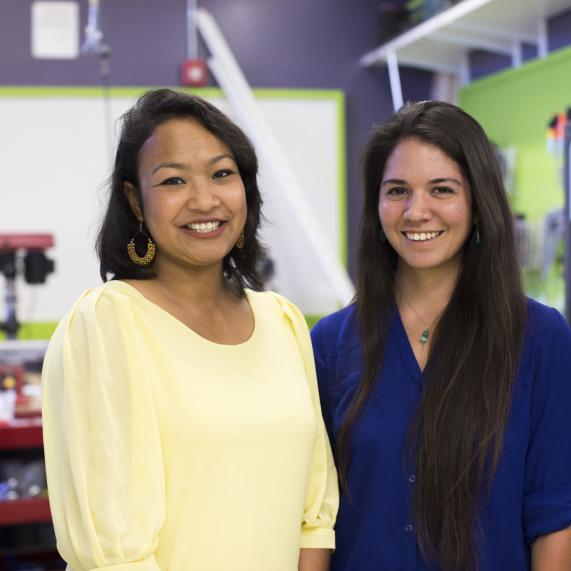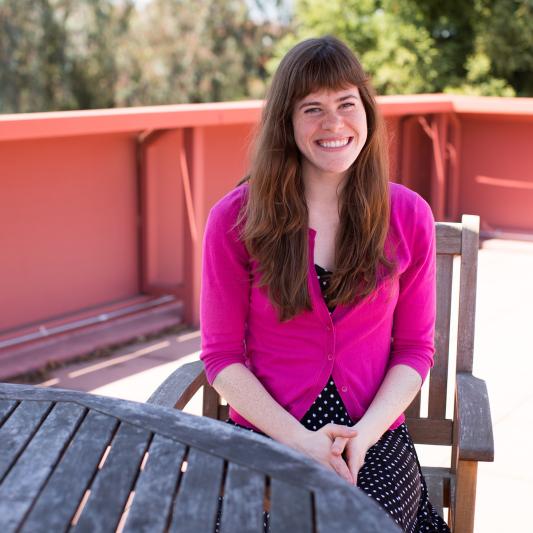
Irina Sthapit and Lauren Beaton
Irina Sthapit (left) and Lauren Beaton had different experiences with science when they were younger. Sthapit, who grew up in Nepal, was always interested in engineering and helped her father fix his motorbike on weekends—but she faced bias as one of only a handful of female students at an engineering college in Kathmandu, including having a professor question whether she’d done her own work. Beaton, raised in Hawaii, loved art but never felt drawn to science until a college mentor revealed its creative possibilities. She ended up studying neuroscience and doing research at a brain imaging lab.
Now master’s students in the Learning Design and Technology (LDT) program, Beaton and Sthapit have joined forces to create a digital game, called Robiotics, to support girls’ interest and sense of belonging in science. The game combines computer science with biology: A natural disaster displaces animals from their environment, and users take what they discover about the creatures’ biological characteristics to program a robot to rescue them. (No experience in coding required; users learn as they go.) They also choose a mentor from a racially and gender-diverse set of characters. “Whenever you get stuck in the game, the mentor is there to help,” says Sthapit. Aimed at kids age 9-12, the game helps to show how computer programming relates to other fields—and that girls belong in any of them.
Sthapit and Beaton (pictured here at the GSE Makery) will present Robiotics to the public at the 2019 LDT Expo on July 26.
Photo by Holly Hernandez



